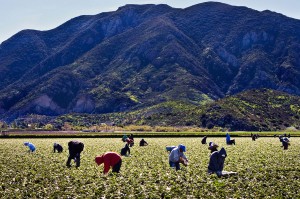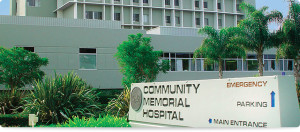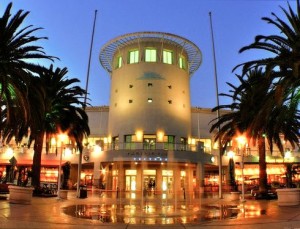The amount of growth both professionally and personally that we have had this year, we owe, in part, to our involvement in the chamber of commerce. We are so blessed by this “little” but MIGHTY community of Ventura and all the good...
- About Ventura
- The Directory
- Event Calendar
- Who We Are
- What We Do
- Contact
Industries
Ventura’s economy has evolved over the years from one dependent on agriculture and natural resources to one that draws on a diverse range of businesses, non-profits, and public agencies. Travel, tourism, hospitality, agriculture, healthcare, technology, retail, distribution, and manufacturing are all important parts of Ventura’s industrial mix.
Agriculture
 Agriculture is an important industry to the City of Ventura and the region. It was identified as one of the economic drivers in the City’s recent Five-Year Economic Development Strategy. Ventura has over 6,800 acres designated as agricultural land, and the industry employs about 500 people.
Agriculture is an important industry to the City of Ventura and the region. It was identified as one of the economic drivers in the City’s recent Five-Year Economic Development Strategy. Ventura has over 6,800 acres designated as agricultural land, and the industry employs about 500 people.
Ventura County’s agriculture industry made $1.84 billion in 2011, according to the County Agricultural Commissioner’s latest Crop Report, with over $13 million in the City of Ventura. The biggest crop was strawberries, followed by raspberries, lemons, nursery stock, and celery.
The county’s growers are clustered in a few areas: Somis and the rural areas outside of Moorpark, the Oxnard Plain, the Santa Clara River Valley, and the fields and orchards on the outskirts of town. In the City of Ventura, agriculture exists both as a thriving business and as a reminder of the agricultural past, with backyard citrus trees in neighborhoods that were once orchards.
Ventura is ripe for capitalizing on the burgeoning Farms to Fork movement. The Ventura Unified School District, which features a Harvest of the Month taste testing, garden-based learning, and a farm-to-school salad bar, is a model for integrating local agriculture into the diets of Ventura students, hospital patients, and other consumers.
Manufacturing
Manufacturing represents a significant part of Ventura’s economy, with 162 manufacturing businesses contributing $457 million annually to the local economy and contributing almost 4,000 jobs. The majority of Ventura’s largest revenue generators are small and medium sized manufacturers that produce supplies for oil, medical, transportation, construction, food, and electronic industries both locally and internationally. Ventura has a rich oil production history, and oil production and support services still thrive today.
Ventura is home to one the world’s most successful and respected apparel companies: Patagonia, a maker of high-end outdoor clothing. The company has more that 1,000 employees worldwide and revenues of about $500 million per year. In the industrial sector at the south end of town, another global apparel company has its headquarters: Fashion Forms, which makes bras and other undergarments for women. The company’s annual revenues are well above $30 million and its products are in stores around the world and on celebrities on every red carpet.
Growth opportunities are created through a growing international market and Ventura’s proximity to the Port of Hueneme, Los Angeles, and the Pacific Rim markets. Naval Base Ventura County provides ample opportunities in defense contracting and high tech engineering.
Healthcare
 As it is all over the United States, healthcare is a vital and growing industry in Ventura. The healthcare sector is the City’s largest employer, with more than 18.6% of total jobs. The largest private-sector employer, with 1,800 jobs, is Community Memorial Health System, which runs the non-profit Community Memorial Hospital.
As it is all over the United States, healthcare is a vital and growing industry in Ventura. The healthcare sector is the City’s largest employer, with more than 18.6% of total jobs. The largest private-sector employer, with 1,800 jobs, is Community Memorial Health System, which runs the non-profit Community Memorial Hospital.
The public Ventura County Medical Center is also among the city’s largest employers. Between them, the two hospitals form the core of the city’s healthcare industry. They are complemented by hundreds of other healthcare businesses, from testing labs to clinics to billing offices.
Both medical centers are currently undertaking major capital improvements, with a combined value of over $600 million. This will have a significant positive impact on related healthcare industries, medical suppliers, medical research, and job creation. One of the planned projects is the creation of a medical focused high-tech incubator.
Retail
 Consumer spending is crucial to Ventura’s economy. In 2012, according to the California Department of Finance, businesses in the city made over $1.9 billion in taxable sales. On a per-capita basis, retail sales in Ventura were $18,000, significantly above the state and county averages.
Consumer spending is crucial to Ventura’s economy. In 2012, according to the California Department of Finance, businesses in the city made over $1.9 billion in taxable sales. On a per-capita basis, retail sales in Ventura were $18,000, significantly above the state and county averages.
Ventura’s shopping options range from the largest chain stores to locally owned boutiques. The historic downtown is a mix of coffeehouses, outdoor cafes, restaurants, performing arts groups, retail shops, spas, salons, health clubs, antique stores, art galleries, museums, and historic buildings.
Pacific View Mall was renovated and expanded more than a decade ago, and its anchor stores include Target and Macy’s. The north end of the mall, vacant for years, has recently seen its own revitalization, with Trader Joe’s, BevMo and other stores moving in. The mall features over 130 specialty shops, restaurants, and cafes.
Harbor Village and Fishing Marina feature 35 shops, galleries, restaurants, and waterfront activities, including Village Carousel & Arcade, a comedy club, wine bar, dive and fishing boats, harbor tours, boat, kayak, and peddle boat rentals, and a beautiful walking promenade.
Specialty Retail – The Ventura Auto Center
The City’s biggest retail center, dollar-wise, is the Ventura Auto Center, home to eight dealers selling 13 different brands of new and used cars. Ventura businesses sold $273 million worth of automobiles and auto parts in 2011, making it the highest-volume sector of the city’s retail industry.
Technology & Innovation
Ventura is home to many new businesses focused on new technologies and innovation in new and emerging markets of sustainability, new and alternative energy sources, conservation, and communication. These businesses are succeeding and making a positive impact on the new economy.
For years, Ventura was surrounded by high-tech hubs: one in Santa Barbara, full of companies started by UCSB students, graduates, and faculty; and one in the Conejo Valley, where former Amgen employees have set out on their own. Today, Ventura has its own home-grown tech scene, formed by a blend of influences from its neighbors to the north and south.
In 2010, the City of Ventura launched a technology business incubator in a building behind City Hall. To go with the space, the City partnered with DFJ Frontier to help fund the new companies. The Ventura Ventures Technology Center now has 14 tenants, along with others that have outgrown the incubator and moved to outside offices. The greatest success story is The Trade Desk, an online advertising company that started in the incubator space in City Hall.
Travel, Tourism, and Hospitality
Leisure spending is one of the pillars of Ventura’s economy. In 2007, the last year for which U.S. Census Bureau data is available, businesses in the city took in $310 million in hotel accommodations and food service sales. On a per capita basis, that was about 33 percent more than California as a whole and 60 percent more than Ventura County as a whole. In 2012, Ventura’s income from tourism through the Transient Occupancy Tax, levied on hotel rates, exceeded $4 million for the first time.
Downtown Ventura draws much of the city’s leisure spending, as it has the county’s highest concentration of bars, restaurants, nightclubs, and music venues. Downtown also has a movie theater, a professional theater company, and an improvisational theater company. Arts and culture, another source of tourism activity, has an estimated economic impact of $18.5 million annually.
Ventura’s beaches are some of its chief tourist attractions, and the coastal neighborhoods are home to many hotels and vacation rental homes. Visitors come to swim, surf, sail, hike, or just enjoy the beautiful scenery and temperate climate. The average high temperatures are in the 70s for most of the year, reaching the low 80s during the summer, and the 60s in the winter.
Heather Arena - Three Sisters Events

Nan Drake - EJ Harrison & Sons
The Ventura Chamber of Commerce is the heartbeat of the business community and a mainline artery to City Hall. The Chamber assists members with the sometimes difficult task of maneuvering through complicated City matters. I beli...

